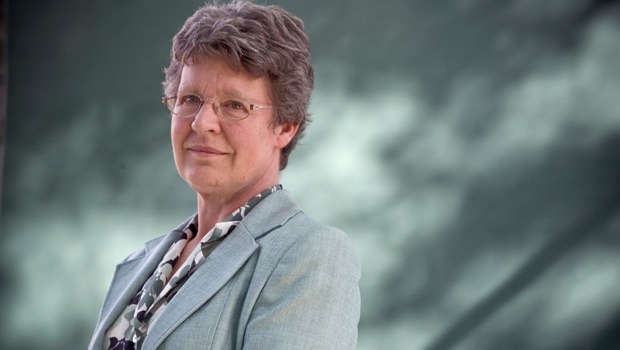
Jocelyn Bell Burnell, who was responsible for research that earned her male colleagues the 1974 Nobel Prize in Physics, is now, nearly 45 years later, finally being recognised for her accomplishments.
Recently, Jocelyn was awarded the Special Breakthrough Prize in Fundamental Physics for her 1967 detection of radio pulsars—rapidly spinning neutron stars that emit radio waves.
The Breakthrough Prize website notes that this discovery enabled scientists to learn more about the universe and test Einstein’s Theory of Relativity.
According to USA Today, she discovered radio pulsars while a graduate student at Cambridge University, though her colleagues Anthony Hewish and Sir Martin Ryle eventually got the credit.
READ MORE: Meet 5 of South Africa's successful black women in science - and they're under 35
As recognition of this discovery, she will receive $3 million (R44. 6 million) and be honoured at the annual Breakthrough Prize awards ceremony in November.
Dame Jocelyn Bell Burnell, the pioneering British astrophysicist, has been awarded a special Breakthrough Prize in fundamental physics for her celebrated discovery of pulsars and her inspirational leadership within the scientific community: https://t.co/tZ0PsBpjAI pic.twitter.com/K4hdK1S4WW
— Oxford University (@UniofOxford) September 6, 2018
According to the award’s website, the Breakthrough Prize in Fundamental Physics is open to all physicists and awarded to those who have “made profound contributions to human knowledge.” While the annual prize is presented for recent discoveries, the Special Breakthrough Prize is not limited in this way.
But the best part of all of this, according to The Guardian, is that Jocelyn says that what led to her discovery was actually self-doubt: "It was a very, very small signal. It occupied about one part in 100 000 of the three miles of chart data that I had. I noticed it because I was being really careful, really thorough, because of impostor syndrome."
So if you’ve ever doubted yourself and your capabilities, know that another woman did the same, but she still achieved something amazing!
What brings real joy to our hearts is that Joycelyn told BBC News that she’s going to use the money she’s being awarded to help students from underrepresented groups (such as women, ethnic minority groups, and refugees) to pursue science careers.
Jocelyn Bell Burnell speaking to Horizon in 1971, about the discovery of pulsars. pic.twitter.com/WCd2AUIvYq
— BBC Archive (@BBCArchive) September 6, 2018
READ MORE: WATCH: Meet the African American women behind NASA's early launches
"I found pulsars because I was a minority person and feeling a bit overawed at Cambridge. I was both female but also from the north-west of the country and I think everybody else around me was southern English," she told BBC News. "So I have this hunch that minority folk bring a fresh angle on things and that is often a very productive thing. In general, a lot of breakthroughs come from left field."
Here’s to well-deserved recognition even if it’s 45 years later.
Sign up to W24's newsletters so you don't miss out on any of our hot stories and giveaways.




 Publications
Publications
 Partners
Partners










